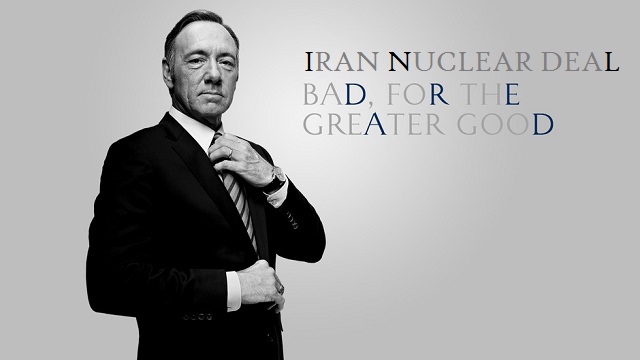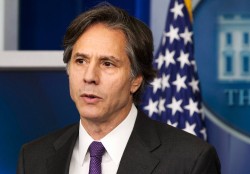Islamic State ‘poses significant and lethal threat’ to the U.S.
On the morning of President Obama’s final State of the Union (SOTUS) Address, January 12, 2016, the House Armed Services Committee, chaired by Rep. Mac Thornberry (R-TX) held the latest in a series of hearing on Combating ISIS. Testimony was heard from a panel of witnesses who are former Obama Administration Intelligence and Diplomatic officials: Former Deputy and Acting Director Michael Morrell, former Defense Undersecretary of Defense for Intelligence Dr. Michael Vickers and former U.S. Ambassador to Syria, Robert Ford.
Morell’s bottom line: “ISIS poses a significant strategic and lethal threat to the United States of America.”
Morell presented the case that the U.S. could be subject to multiple direct attacks organized and planned from the Caliphate of the Islamic State in Raqaa Syria. He distinguished between direct and indicate attacks such as lone wolf attacks, the latter causing few fatalities as distinct of large mass casualties as in the November 13th Paris massacres that killed over 130. He noted that the San Bernardino attack produced the largest fatalities second only to 9/11. He suggested that simply taking out the leadership of ISIS would not remove the safe haven of the self-declared caliphate that had attracted more than 30,000 foreign fighters and homesteaders from 100 countries He considers ISIS a source of instability in the Middle East threatening allies Israeli and the Gulf Sunni states, the latter he deemed a bulwark against the hegemonic objectives of Iran.
He consider ISIS as fulfilling all of the basic functions of a state with its own executive, Sharia law courts, a virtual army, providing social services to its inhabitants and taxing them. He indicated that ISIS collected tens of millions monthly in taxes outpacing oil sales revenues. Morell indicated that ISIS has outpaced expansion of Al Qaeda from whence it sprang in Iraq. It has attracted the allegiances of extremist Islamist groups in 20 countries. He pointed out the directed attack in Paris that took the lives of 130 innocent civilians and the comments from UK domestic intelligence that they expected multiple direct attacks producing fatalities in excess of the 2005 London bus and underground attacks.
He cautioned to listen to ISIS when it says that it will conduct direct attacks in the U.S. In the near term he predicted that ISIS in Libya may unleash a similar blitzkrieg like the one in Iraq that could result in seizure of vast swaths of that North African country providing another safe haven attracting foreign fighters from Europe. Simply elimination of the leadership of the Islamic state is not enough. A complex military operation would have to be launched to destroy the safe haven of the Caliphate. Ultimately it would require a comprehensive political settlement in Syria dealing with the regime of President Assad and empowering of the disenfranchised Sunni majority.
The contrast between these comments by Morell before the House Armed Service on Combating ISIS with that of President Obama was stark.CNN noted that Obama “underplayed the threat from radical Islamist groups such as ISIS. He mocked the contention that fighters on “on the back of pickup trucks and twisted souls plotting in apartments or garages” represented an existential threat to America.”
Meanwhile Iran announced that the release today of the 10 U.S. sailors seized along with their patrol boats in the Persian Gulf and taken to Iran’s Farsi Island was “speculation”. So much for the representations by Foreign Minister Zarif to Secretary Kerry that they would be released within a few hours.
WATCH this C-Span video clip of Morell’s testimony at yesterday’s House Armed Forces Committee hearing on Combating ISIS:
RELATED ARTICLES:
The Islamic State, Turkey, and Transportation
Archive of Islamic State Administrative Documents (cont.)
Eulogy to Abu Nabil al-Anbari: Islamic State leader in Libya
EDITORS NOTE: This column originally appeared in the New English Review.



